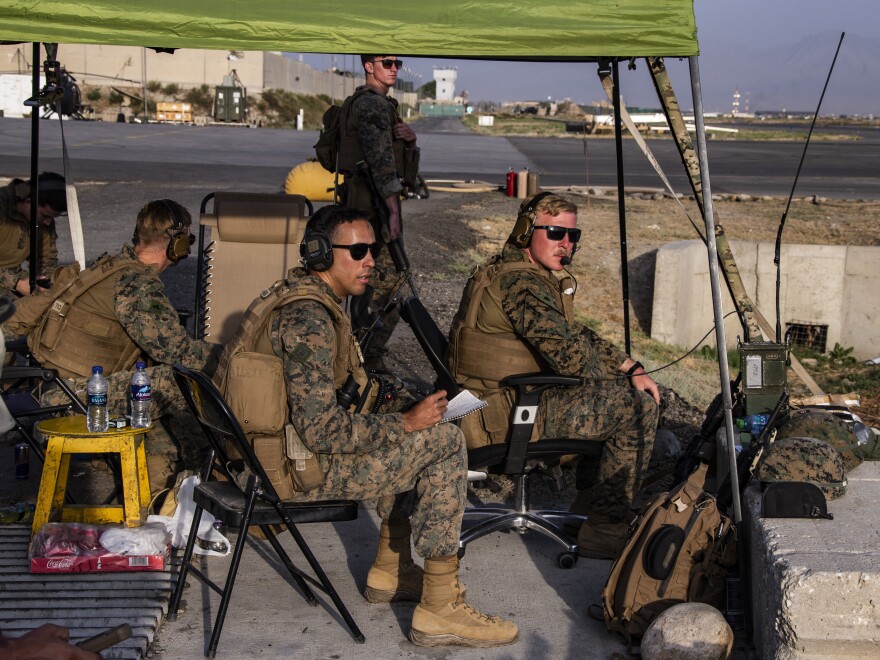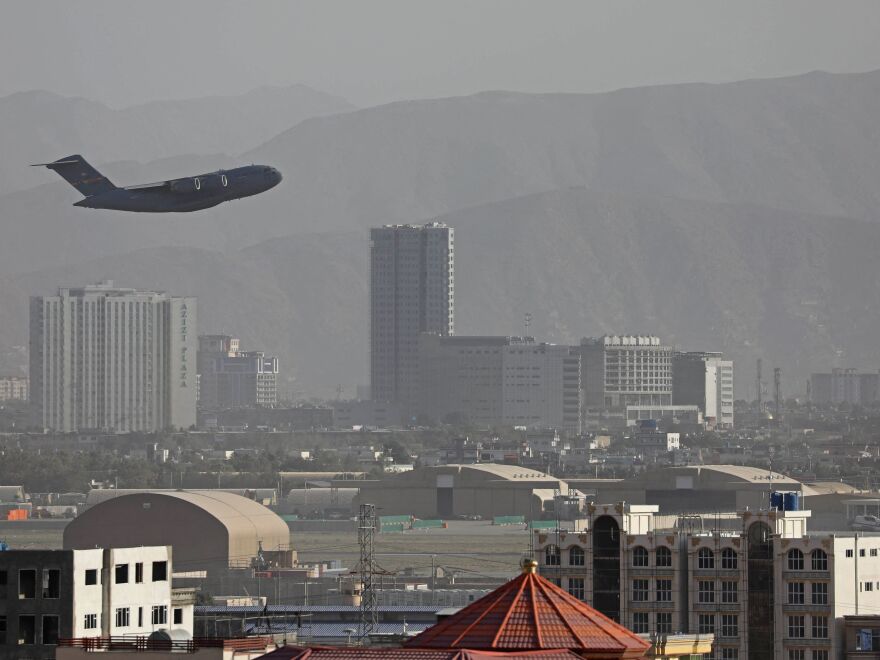Updated August 28, 2021 at 10:27 AM ET
With President Biden remaining committed to pulling U.S. troops from Afghanistan by Aug. 31, time is running out for emergency evacuation missions.
But for now — even amid credible threats to the Kabul airport following Thursday's deadly attack — there's a constant stream of U.S. aircraft carrying out the evacuations of Americans and Afghans leaving the country following the Taliban's takeover, an air traffic controller there tells NPR.
"We still have a steady flow of aircraft coming in and out. For the most part, it's been fairly calm the last 48 hours," said Master Sgt. Kevin Haunschild, a senior air traffic controller from the 24th Marine Expeditionary Unit. He leads the U.S. military team responsible for the roughly 100 planes leaving the Kabul airport each day.

"We do have multiple aircraft coming in, parking on all the ramps, making sure people get evacuated as they are awaiting their turn," he told NPR's Scott Simon.
The White House says more than 100,000 people — including more than 5,000 U.S. citizens — have been evacuated since the Taliban took over the country on Aug. 15.
Frantic concerns over the safety of the effort materialized this week, as a Thursday attack at the airport by Islamic State Khorasan, also known as ISIS-K, killed nearly 200 people, including 13 U.S. service members.
The attack illustrated what had already been a chaotic withdrawal for Afghan refugees and Americans. And still, hundreds — if not thousands — continue to gather around the Hamid Karzai International Airport in Kabul, hoping to be able to leave the country.
Haunschild said that from where he is positioned, he can see "several hundred to a maybe couple thousand" people outside of the airport, waiting to catch a flight out of the country.
Despite the Taliban having been in control of Afghanistan for almost two weeks, Haunschild said the U.S. Marine Air Traffic Control team has been making the calls when planes take off from Kabul.
"We actually control all of that," he said.
For the first 48 hours of the operation, Haunschild and one other Marine were controlling all air traffic in and out of the airport. As Biden's Aug. 31 deadline nears, Haunschild said he is not sure exactly when he and his team will wrap up.
"We haven't been given a specific date, time or anything yet," Haunschild said. "We're still moving forward — and I will be out there until I am told not to be."
As for Haunschild and his fellow Marines' departure from Afghanistan — which is likely just days away — he was matter of fact when asked how that would take place.
"They point to the plane and we start walking," Haunschild said.
Copyright 2021 NPR. To see more, visit https://www.npr.org.



